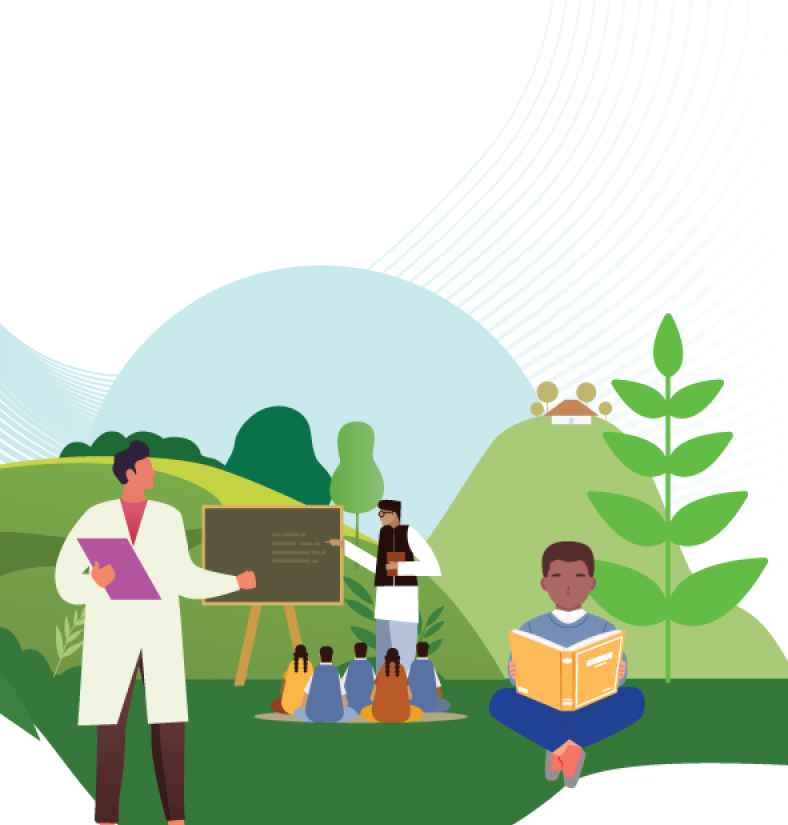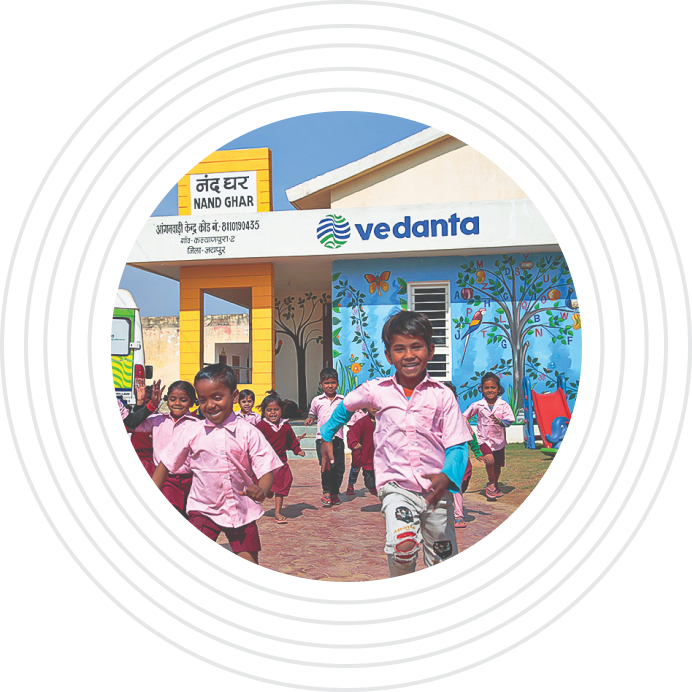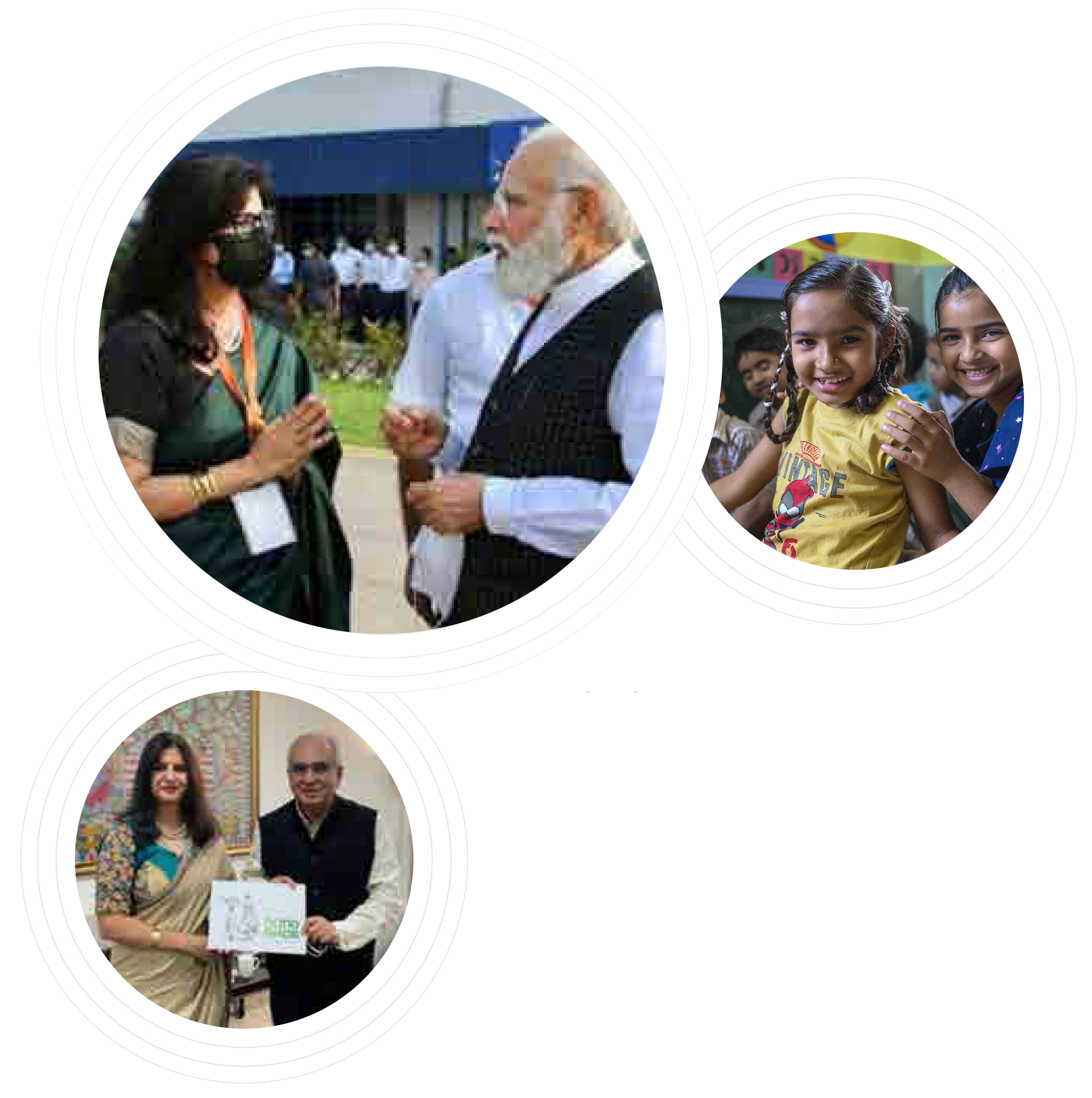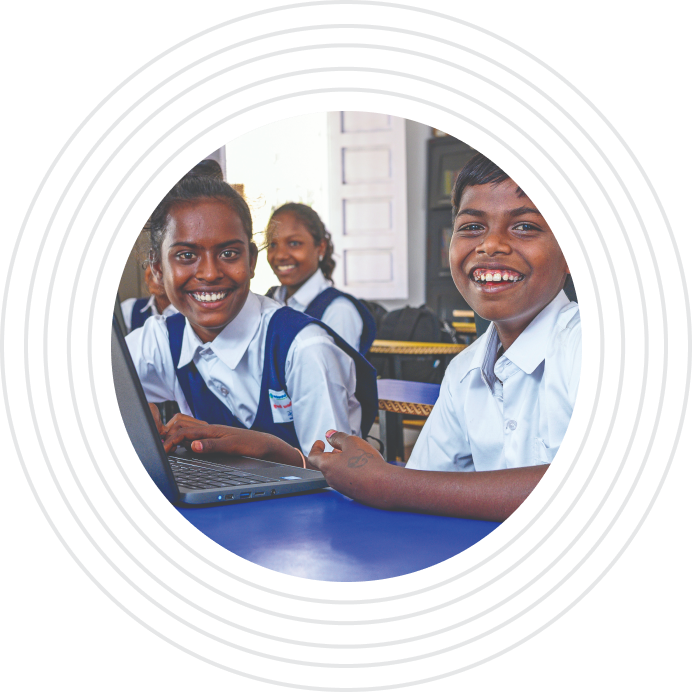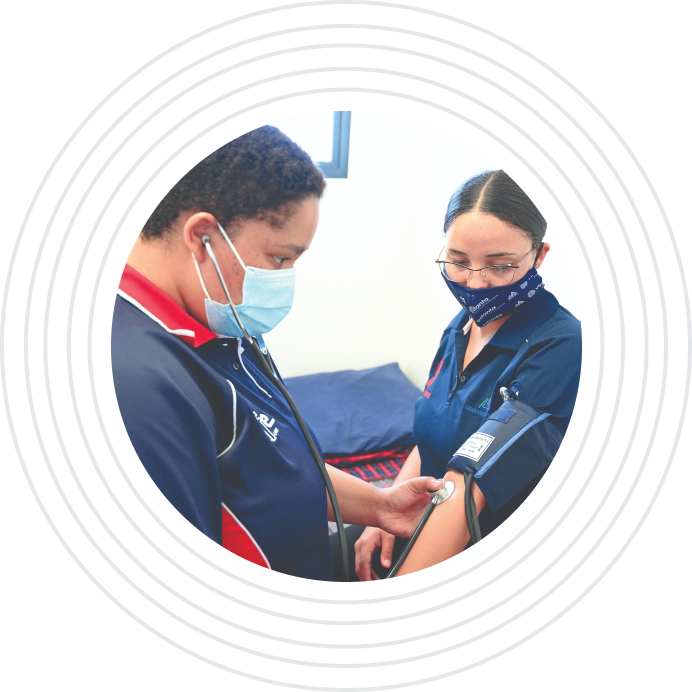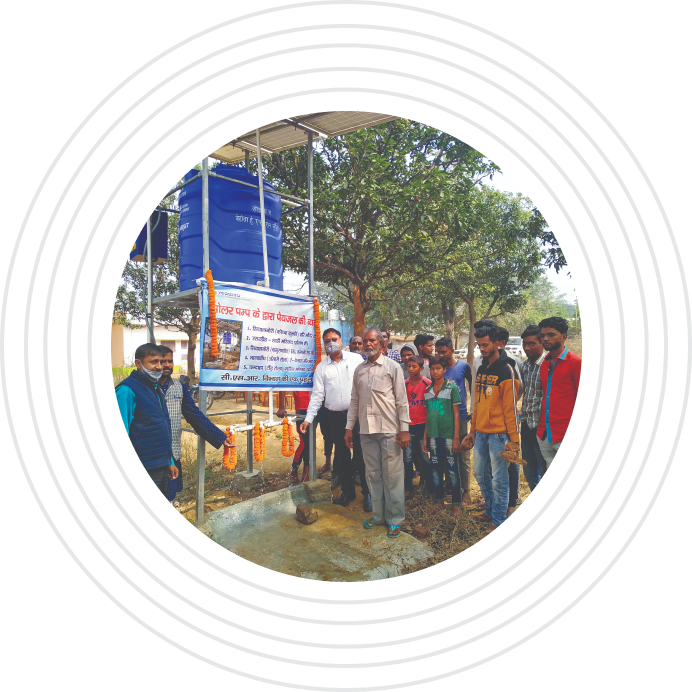Uplifting over 100 million women and children through Education, Nutrition, Healthcare and Welfare
Better education, health and nutrition are both indicators and instruments of development. Education, for example, enhances work skills, which equips an individual to earn a living and bring change to one’s life and that of the community. At Vedanta, we promote equitable distribution of resources, promote equal access to education, healthcare, nutrition, sanitation, and so on to create opportunities for people to improve their lives.
Key material issues
Community development
SDGs impacted


Sub-goals2.1: By 2030, end hunger and ensure access by all people, in particular
the poor and people in vulnerable situations, including infants, to safe,
nutritious and sufficient food all year round
2.2: By 2030, end all forms of malnutrition, including achieving, by
2025, the internationally agreed targets on stunting and wasting in
children under 5 years of age, and address the nutritional needs of
adolescent girls, pregnant and lactating women and older persons
4.1: By 2030, ensure that all girls and boys complete free, equitable
and quality primary and secondary education leading to relevant and
effective learning outcomes
4.2: By 2030, ensure that all girls and boys have access to quality early
childhood development, care and pre-primary education so that they
are ready for primary education
